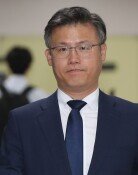[Opinion] Koreas GDP Rank Falls
Korea ranked 11th in Gross Domestic Product (GDP) around the world in 2002 and 2003. Koreas GDP ranking, however, has been edged down to 12th by Indias rise. Last year, Korea outdid Mexico, but came in 13th place after being overtaken by Brazil and Russia.
Within just four years, India, Brazil, and Russia, along with China - the so-called BRIC countries - emerged as new economic powers. Their rise was expected by a Goldman Sachs report released in 2003 that coined the word BRICs. The report sent an alarm to Korea.
IBM, whose business areas include consulting, released a report on the Korean economy with the following table of contents: In economic leadership, Korea is following the United States and Japan and is rapidly being followed by China. Samsung and LG lost in patent disputes, there are many unemployed doctorates, a large number of graduates, little qualified talent, and venture firms fell into a death valley.
The report also points out outdated and irrelevant government policies and administrative regulations discouraging corporate investment. The report lists the reasons why Koreas GDP ranking fell.
In the past, Korea did well. Koreans hoped to become the worlds tenth-largest economy. Sometimes Koreans could not understand why their economy was not in the G8, if not the G7.
Today, Korea is concerned about the lack of a growth engine for the economy. For four straight years since Roh Moo-hyun administration took office, growth potential and economic growth have been behind the global averages. That is the result of the administrations belief that distribution should come before growth and that people can be equally rich even without economic growth.
The IBM report suggests innovation to address the challenges. That innovation is totally different from one-off innovation, which has long been pursued by the current government.
The report also recommends encouraging large companies by saying that a nations economic scale can be measured by the number of its companies included on the Fortune 500 list.
It also advises Korea to develop human resources, who are essential to a nations future, and to lessen restrictions on college admissions.
All the advice seems to go against the policies of the incumbent.
Hong Gwon-hee, Editorial Writer, konihong@donga.com
Headline News
- Gov’t faces criticism over policy reversals and decision-making processes
- Controversy erupts over ‘single life’ welfare packages
- Gov’t announces worker protection measures for heat waves
- Madonna wearing Kahlo’s items faces controversy over special treatment
- Pirates' Bae Ji-hwan pulls off a stunning come-from-behind victory







